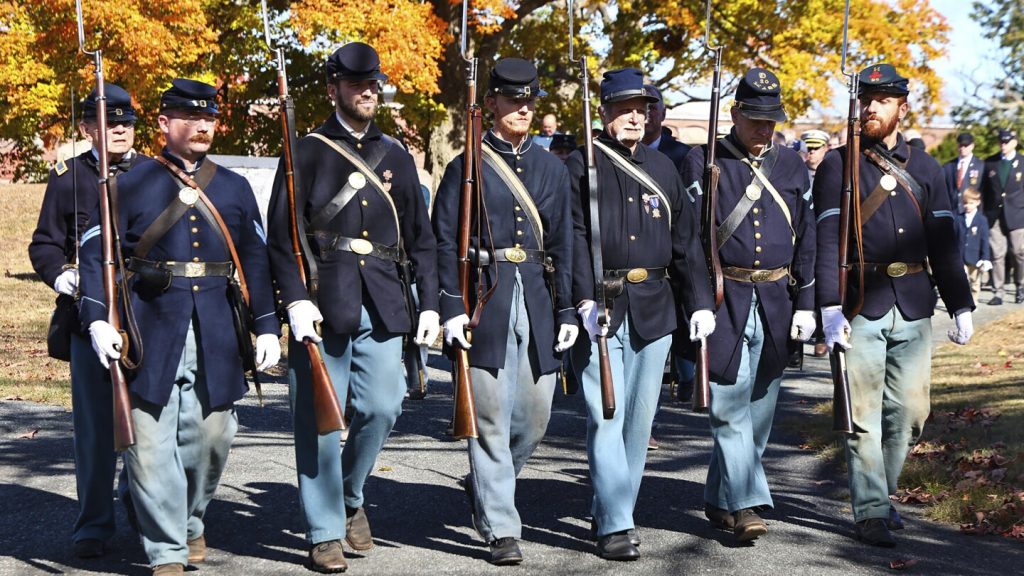The cremated remains of over two dozen American Civil War veterans have been discovered in storage facilities in Seattle after languishing there for several decades. The veterans were identified by the Missing In America Project, which concluded that they were Union soldiers deserving of a proper burial with military honors. After confirming their war service through genealogical research, the remains were buried at Washington’s Tahoma National Cemetery in a traditional service offered to Civil War veterans. The historical 4th U.S. Infantry Regiment dressed in Union uniforms and fired musket volleys while the crowd sang “The Battle Hymn of the Republic” to honor the veterans.
Some of the veterans buried at the ceremony had fought in critical battles such as Gettysburg, Stones River, and the Atlanta campaign, while others had been held at Confederate prisons or deserted the Confederate Army to join the Union forces. Despite efforts to locate living descendants of the veterans, none were found, highlighting the long overdue nature of the burial. The discovery of the remains of Civil War veterans in various locations, including funeral homes, battlefields, and graveyards, has led to reburials becoming major events in communities across the country. The reburials allow residents to celebrate veterans and remember the long-forgotten war, with some ceremonies sparking controversy, such as the unsuccessful attempt to conduct DNA tests on soldiers buried at the Manassas National Battlefield in Virginia.
Among the veterans buried at Tahoma National Cemetery was Byron Johnson, a Pawtucket native who served as a hospital steward with the Union Army during the Civil War. After moving out West and eventually dying in Seattle in 1913, Johnson’s remains were delivered to Pawtucket City Hall and buried with military honors at his family’s plot in Oak Grove Cemetery. Pawtucket Mayor Donald R. Grebien emphasized the importance of honoring veterans who sacrificed their lives for the country, especially during the Civil War, which played a significant role in preserving the Union. The burial services serve as a reminder of the sacrifices made by individuals like Byron Johnson and their contributions to securing the freedoms enjoyed today.
Bruce Frail and his son Ben, both active members of the Sons of Union Veterans of the Civil War, attended Johnson’s burial service, with Ben portraying a Union Army captain during the ceremony. Bruce Frail, a former commander-in-chief with the Sons of Union Veterans and state coordinator for the Missing In America Project, described the importance of honoring veterans in such a manner, highlighting the indescribable feeling that comes with paying tribute to those who served their country. The task of piecing together Johnson’s life story fell to Amelia Boivin, the constituent liaison in the Pawtucket mayor’s office, who delved into Johnson’s background as a druggist and his later years spent working in San Francisco and Seattle. Ultimately, Johnson’s burial served as a resolution and a way to ensure that he was not lost to history, providing a sense of closure to his long-overdue burial.


